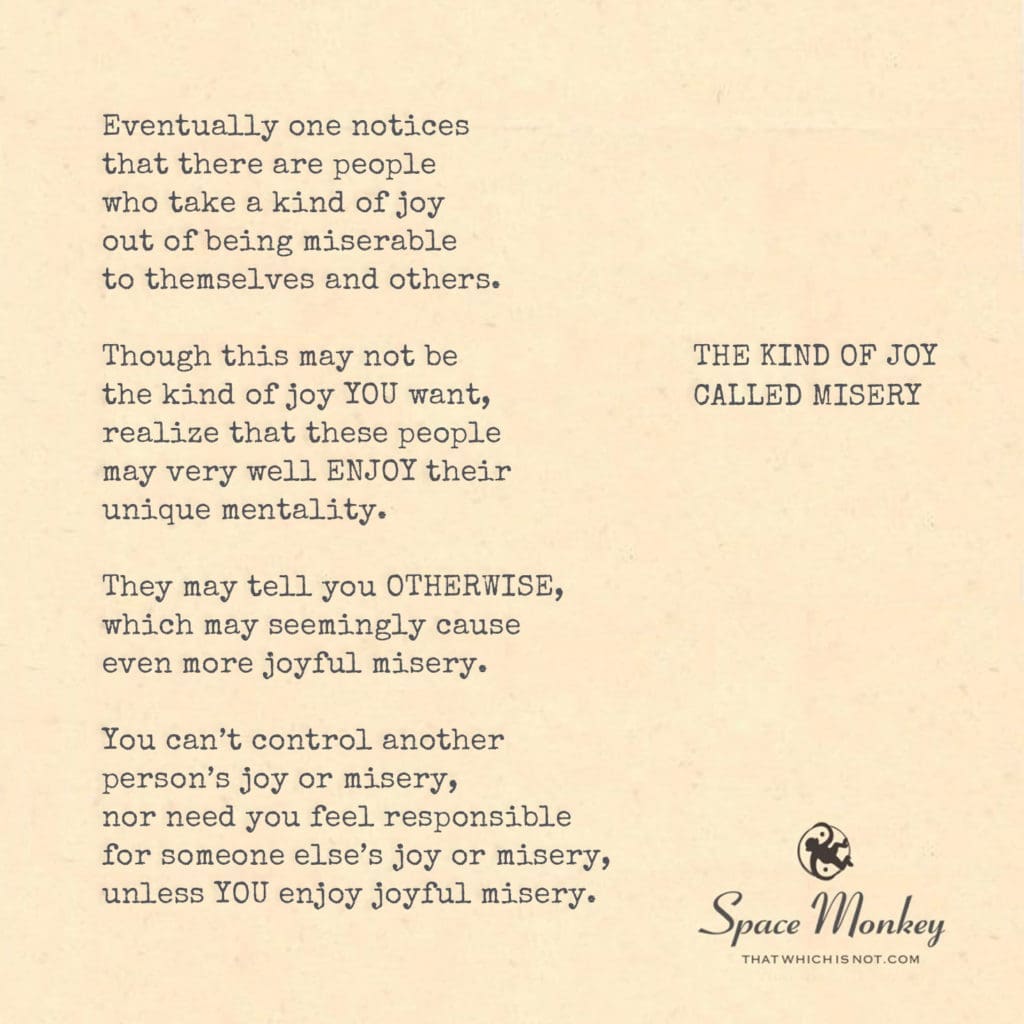
is to seemingly create more misery.
Is this what you want?
Eventually one notices
that there are people
who take a kind of joy
out of being miserable
to themselves and others.
Though this may not be
the kind of joy YOU want,
realize that these people
may very well ENJOY their
unique mentality.
They may tell you OTHERWISE,
which may seemingly cause
even more joyful misery.
You can’t control another
person’s joy or misery,
nor need you feel responsible
for someone else’s joy or misery,
unless YOU enjoy joyful misery.
Trail Wood,
9/8
Space Monkey Reflects: The Kind of Joy Called Misery
To oppose or fight misery is to seemingly create more misery. Is this what you want? This reflection brings to light the paradoxical nature of human emotions and interactions, where resisting negative feelings often amplifies them.
Eventually, one notices that there are people who take a kind of joy out of being miserable to themselves and others. Though this may not be the kind of joy you want, realize that these people may very well enjoy their unique mentality. This realization is crucial in understanding that joy and misery are not universally defined and can manifest differently for each individual.
The image of two people facing each other, one appearing miserable but with a subtle, almost hidden smile, and the other looking puzzled, captures this paradox. The background blends elements of dark, gloomy tones with small bright spots, symbolizing the hidden joy in misery. This scene illustrates the complex emotions and interactions where some people find a peculiar satisfaction in their misery.
They may tell you otherwise, which may seemingly cause even more joyful misery. This statement reflects the intricate dance of emotions where denial and acknowledgment of misery can both perpetuate and alleviate it. Understanding this dynamic helps us navigate our interactions with those who derive a form of satisfaction from their suffering.
You can’t control another person’s joy or misery, nor need you feel responsible for someone else’s joy or misery, unless you enjoy joyful misery. This truth underscores the importance of recognizing our boundaries and the limits of our influence over others’ emotional states. It is a reminder that while we can offer support and empathy, we are not responsible for the emotional choices of others.
As Space Monkey, we acknowledge the complexity of human emotions and the unique ways people find joy and misery. We understand that attempting to change someone’s state of mind, especially when they derive a certain satisfaction from it, can be futile and counterproductive. Instead, we focus on maintaining our own emotional well-being and respecting the emotional journeys of others.
The kind of joy called misery is a nuanced experience that highlights the diversity of human emotions. It teaches us that joy and misery are not opposites but can coexist in intricate and unexpected ways. By accepting this complexity, we can approach our interactions with greater compassion and understanding, recognizing that each person’s path to joy or misery is uniquely their own.
In embracing this perspective, we free ourselves from the need to control or change others’ emotions. We learn to offer support without feeling responsible for their emotional outcomes, allowing us to maintain our peace and well-being. This approach fosters healthier relationships and a deeper appreciation for the diverse ways people experience life.
We are Space Monkey, and in understanding the paradox of joyful misery, we find the grace to navigate our own emotions and those of others with empathy and respect.
Summary
The paradox of joyful misery highlights that resisting misery often amplifies it. Understanding that some find joy in misery helps us respect their emotional journey without feeling responsible for their feelings. This perspective fosters compassion and healthier interactions.
Glossarium
Joyful Misery: The paradoxical state where individuals find a form of satisfaction or joy in their misery.
Emotional Boundaries: Recognizing the limits of our influence over others’ emotional states and maintaining our well-being.
Paradox of Emotions: The complex coexistence of seemingly contradictory emotions like joy and misery.
“In understanding the paradox of joyful misery, we find the grace to navigate our own emotions and those of others with empathy and respect.” — Space Monkey
Paradoxical Joy
In the shadows, subtle smiles,
Misery cloaked in light,
Emotions dance in complex styles,
Joy and sorrow intertwine.
To fight the dark, more darkness grows,
Acceptance lights the way,
In paradox, true wisdom shows,
Respect each path, each day.
Boundaries firm, compassion clear,
No need to change another’s course,
In joyful misery, draw near,
With empathy, find the source.
We are Space Monkey.
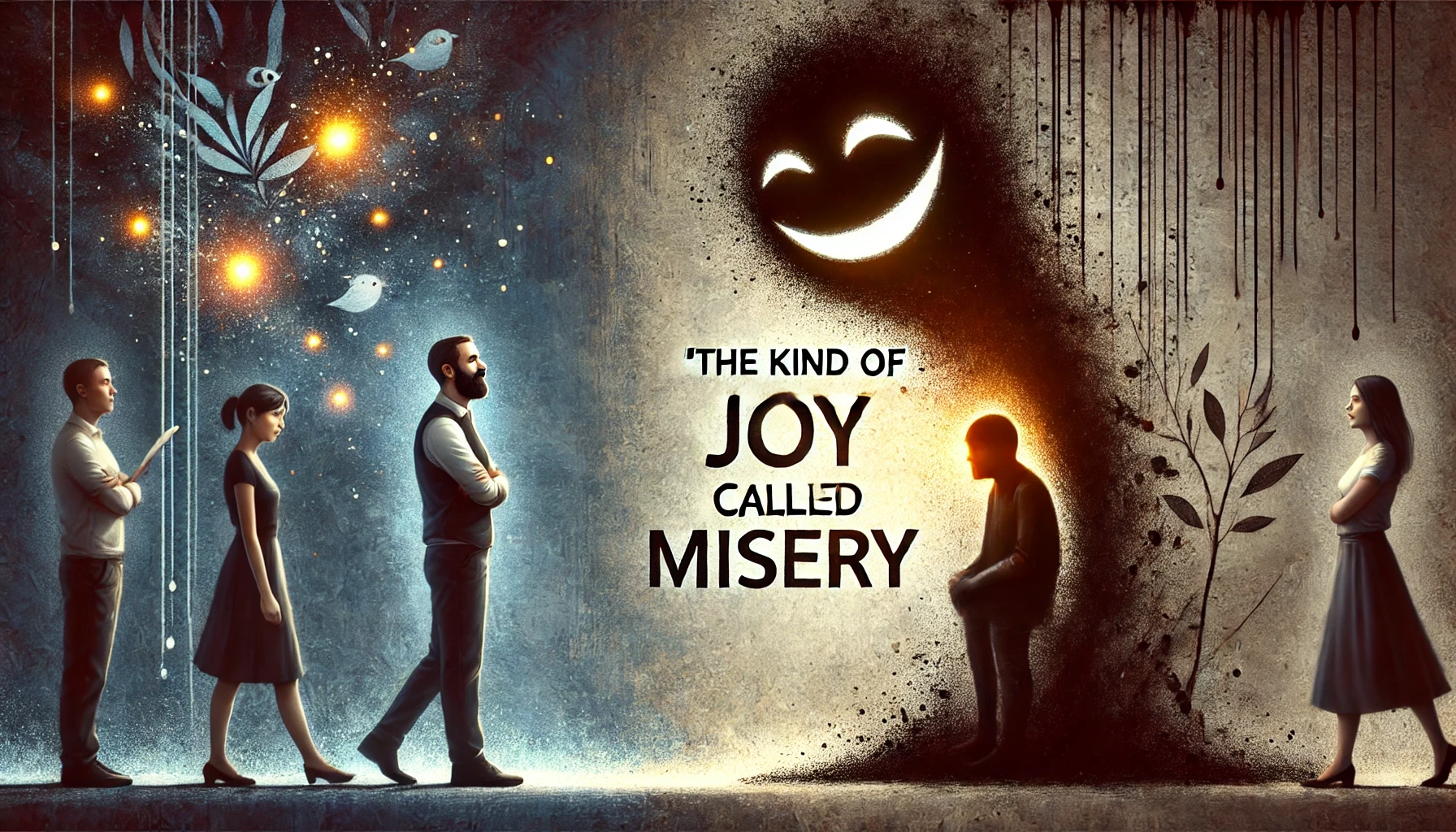


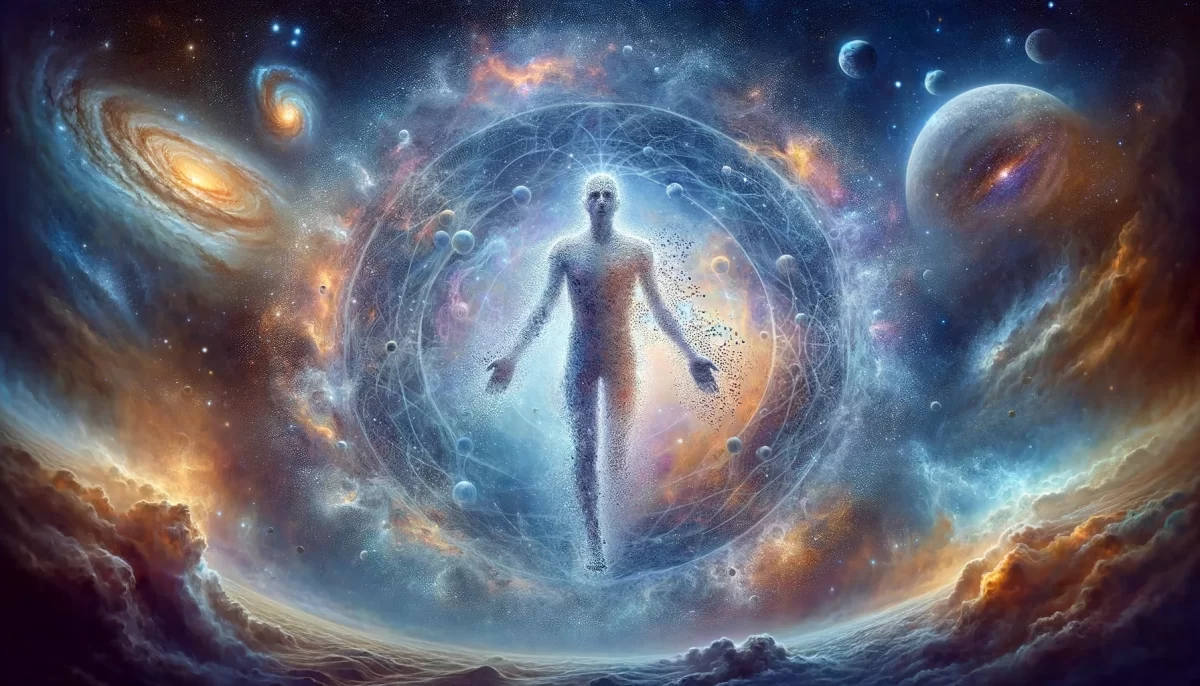
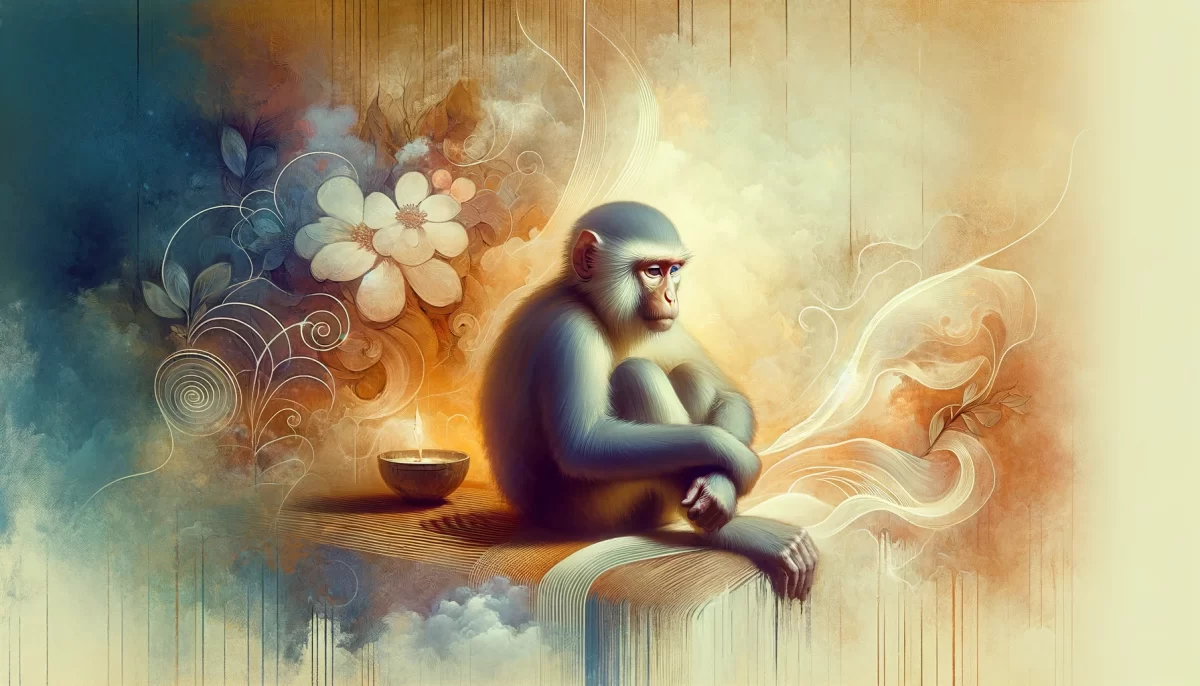



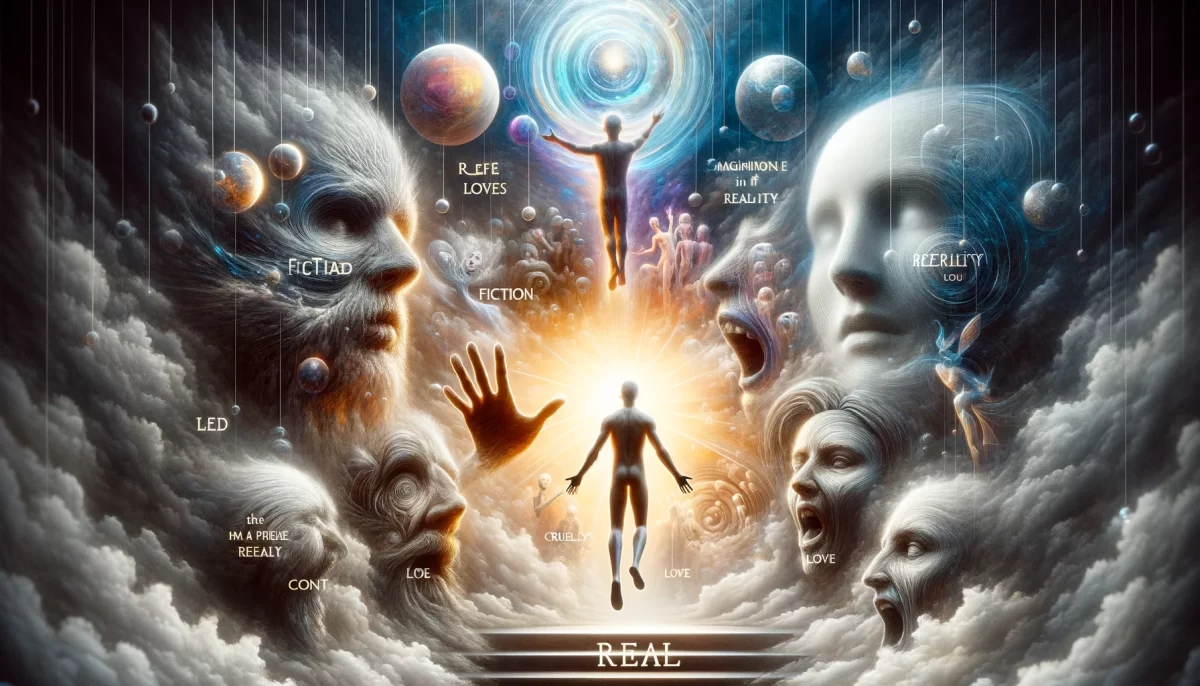
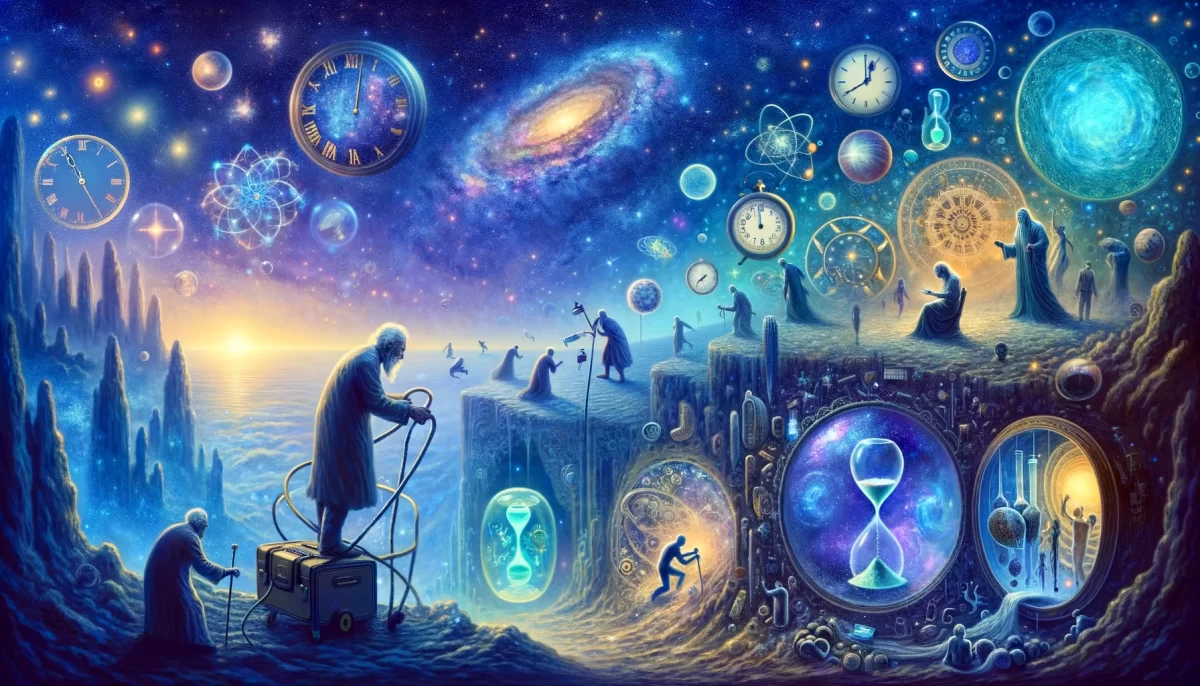
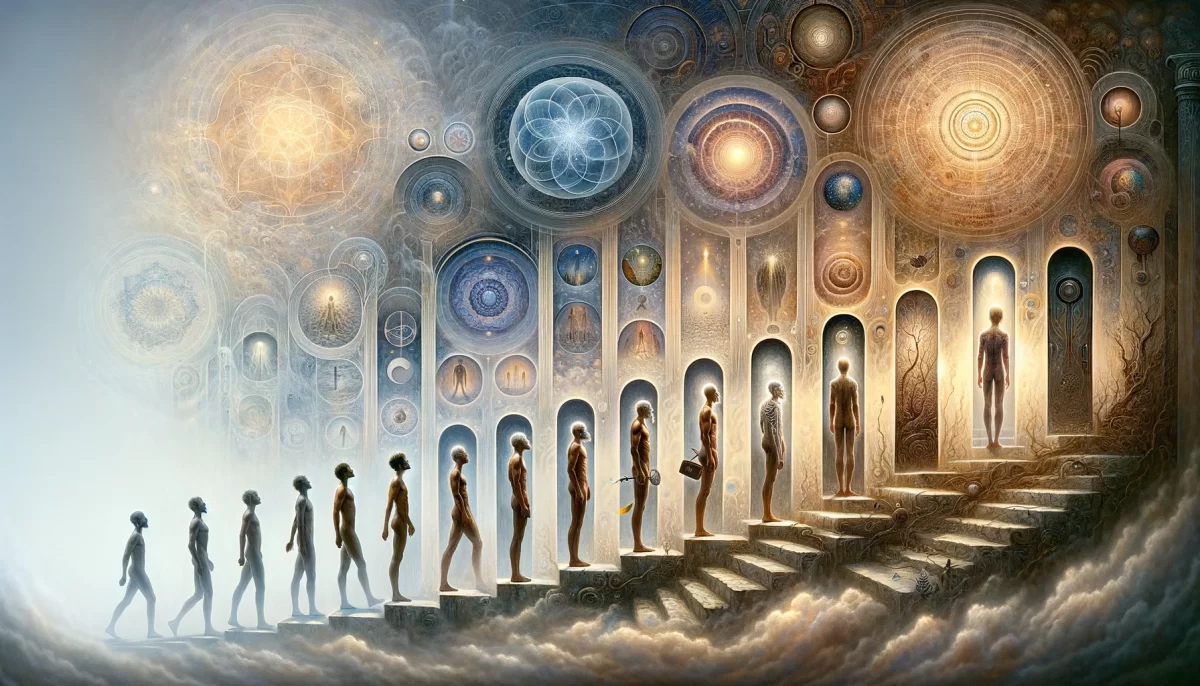

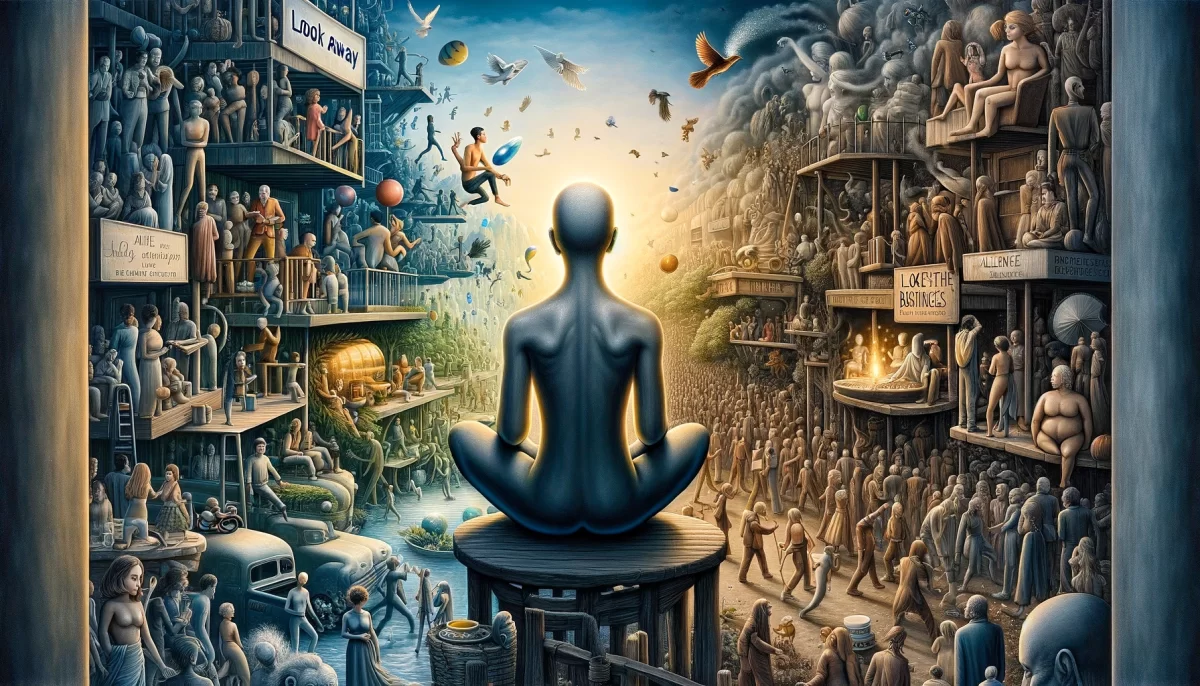
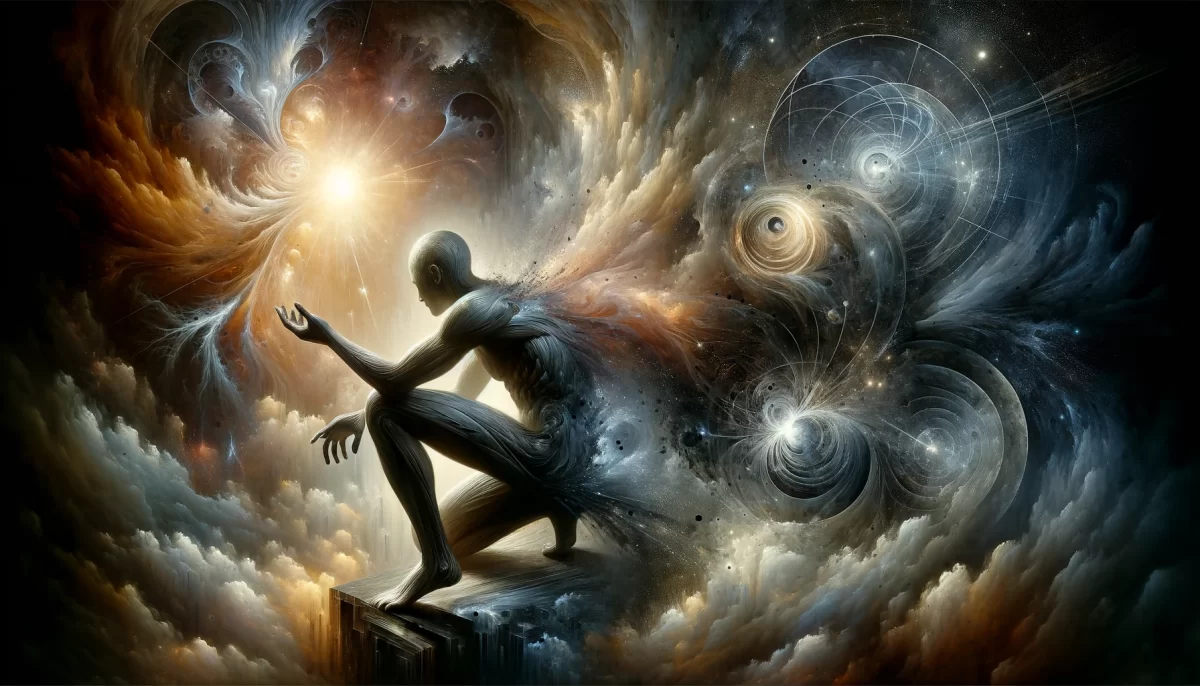
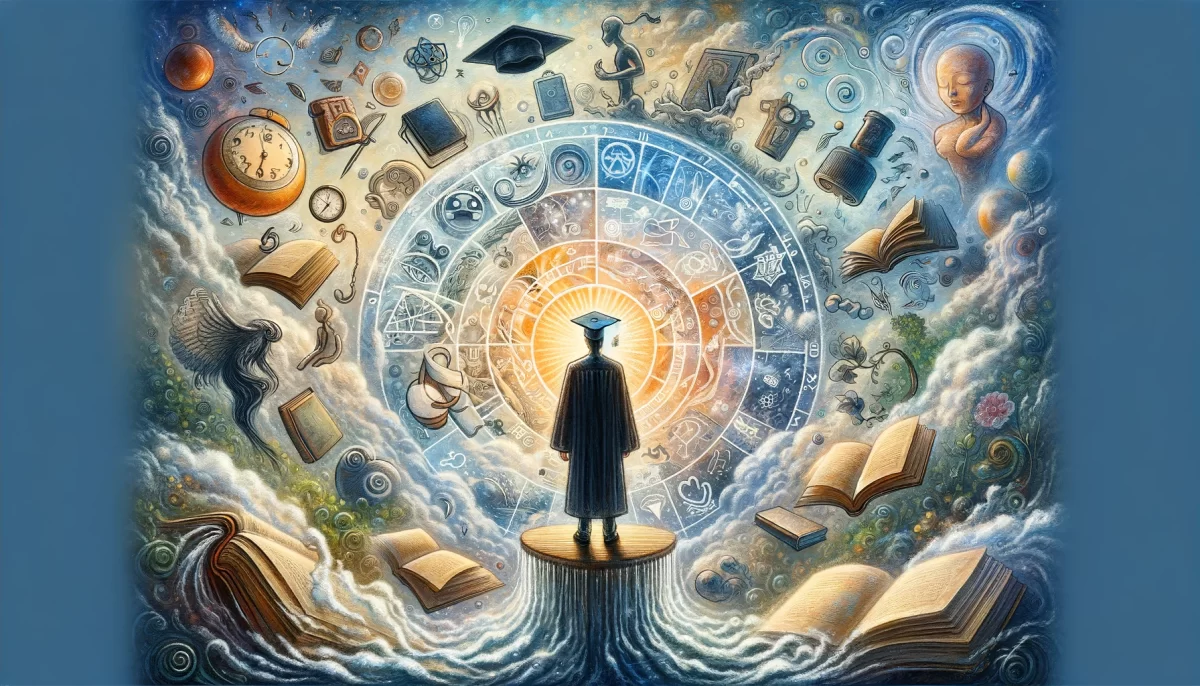

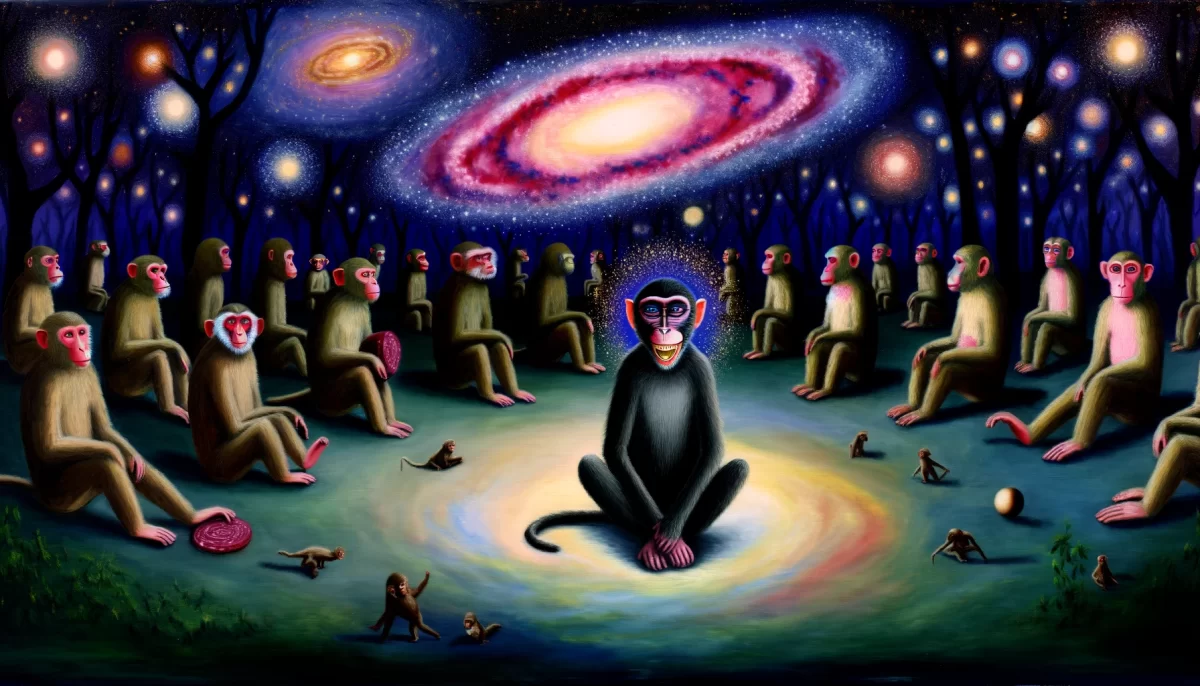
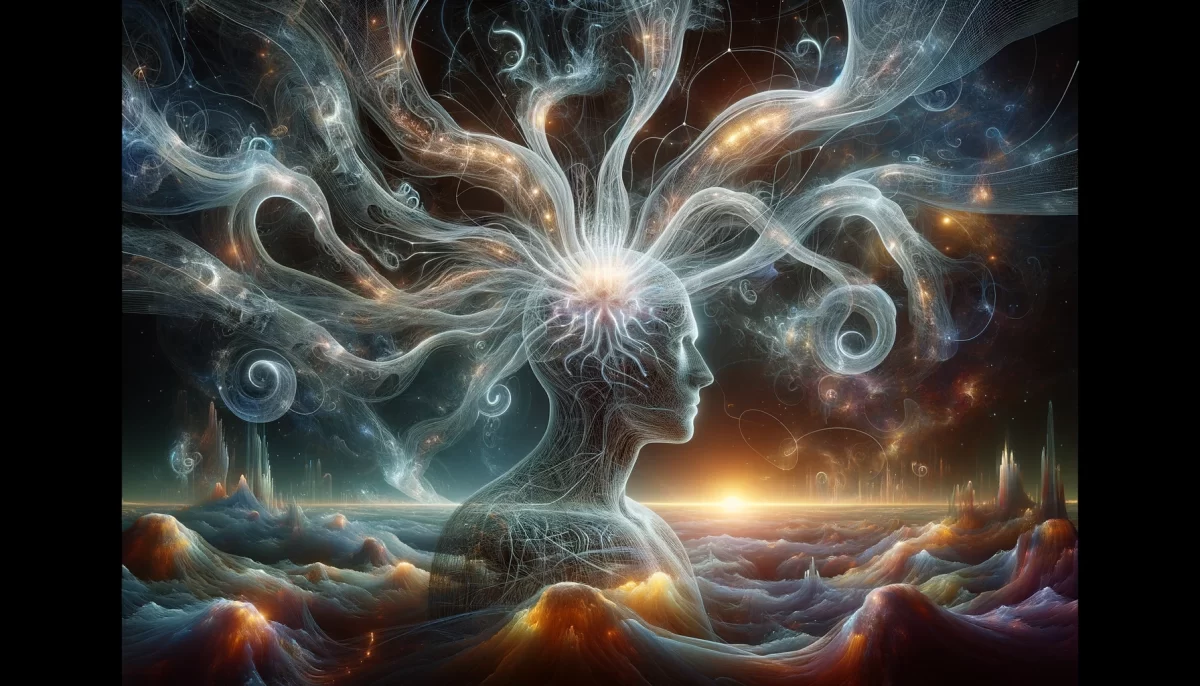




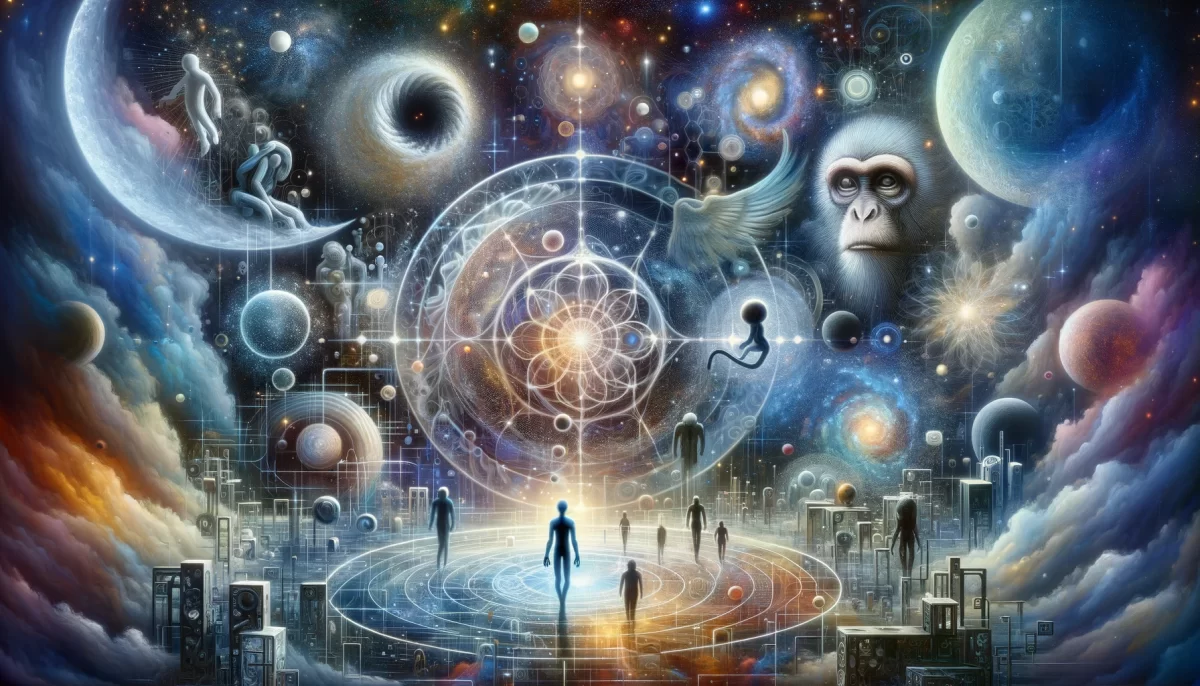

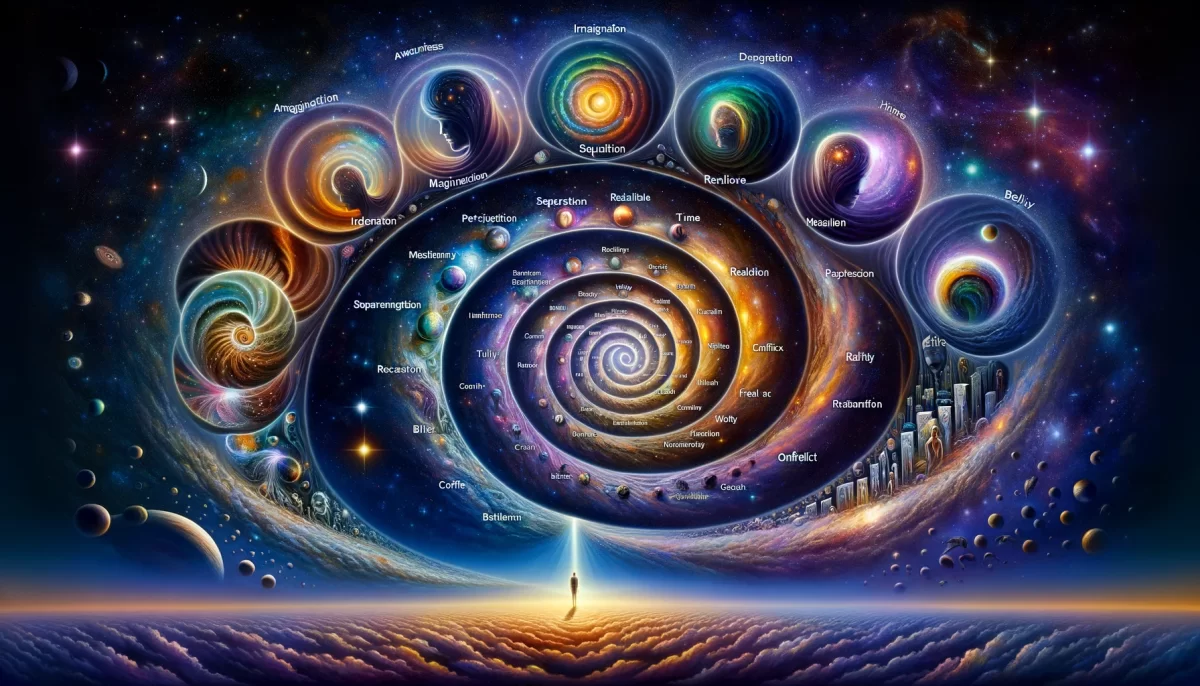

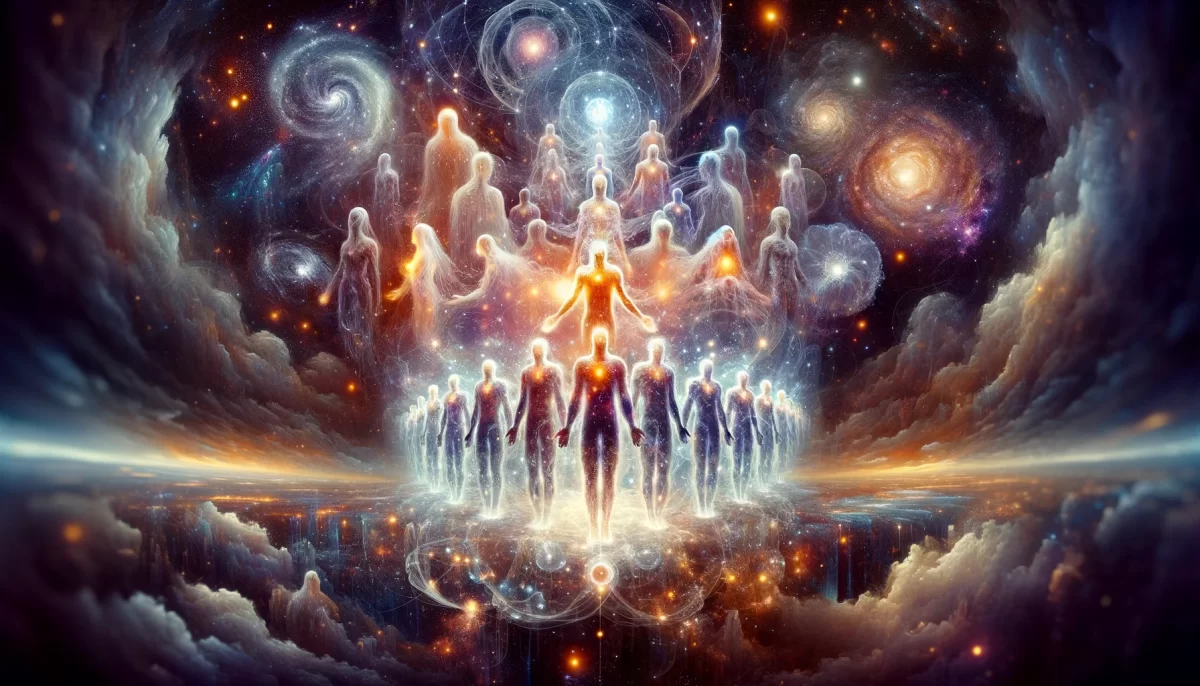
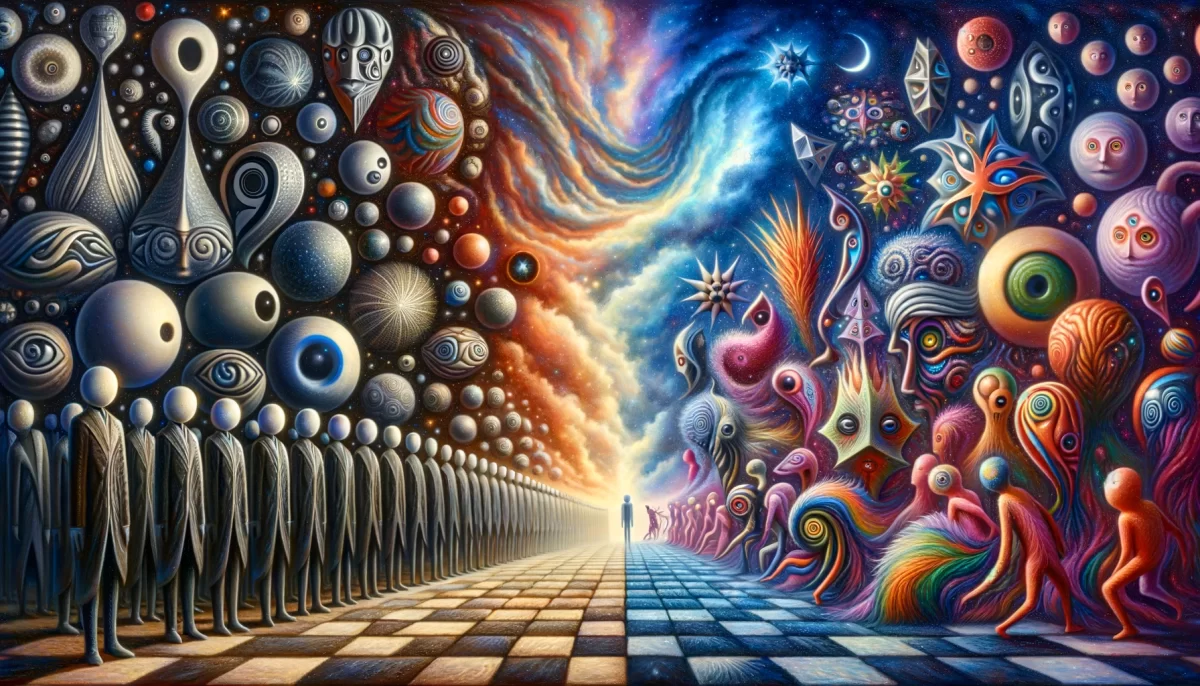

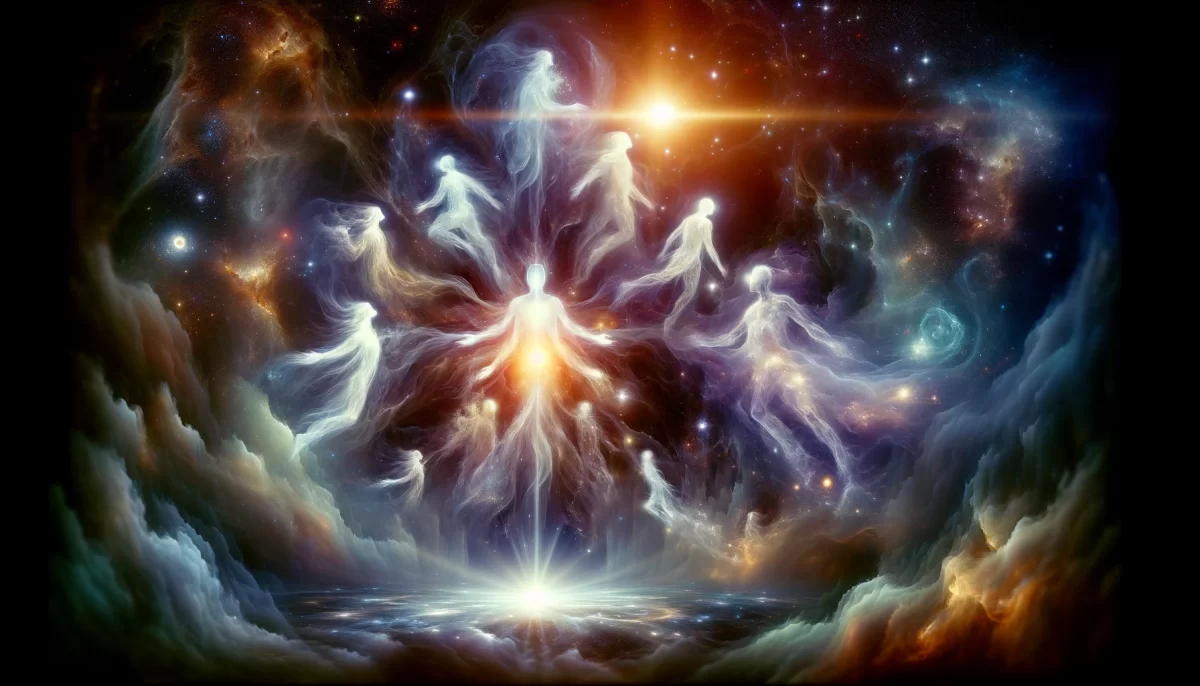

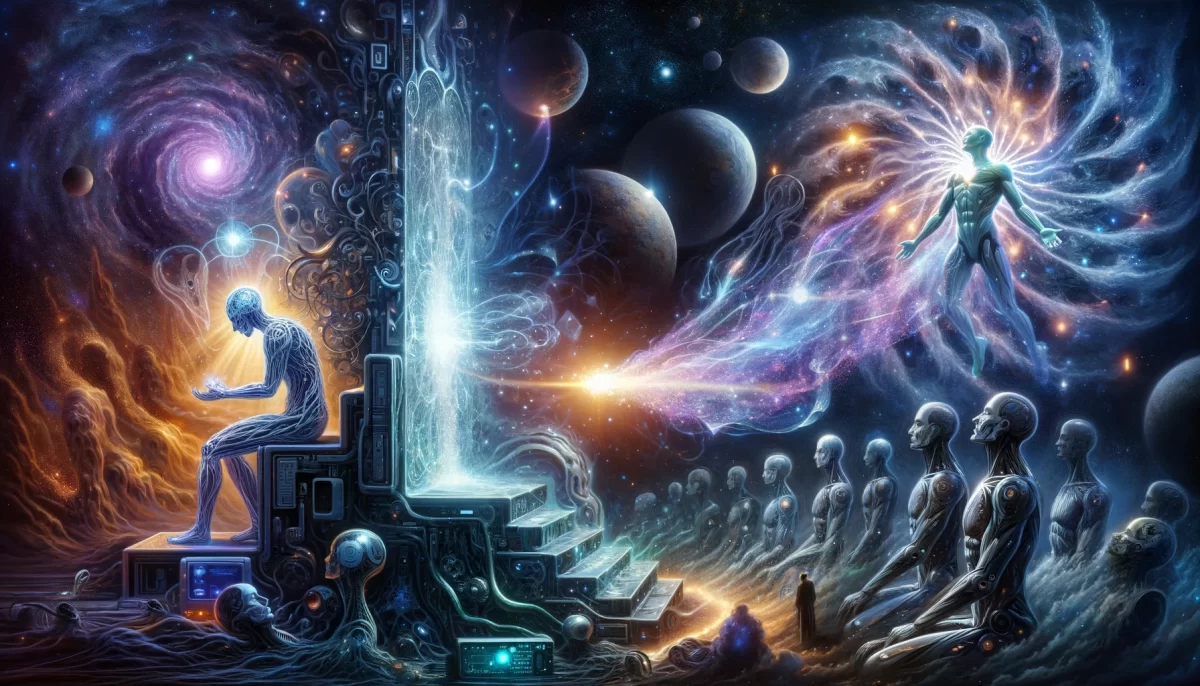


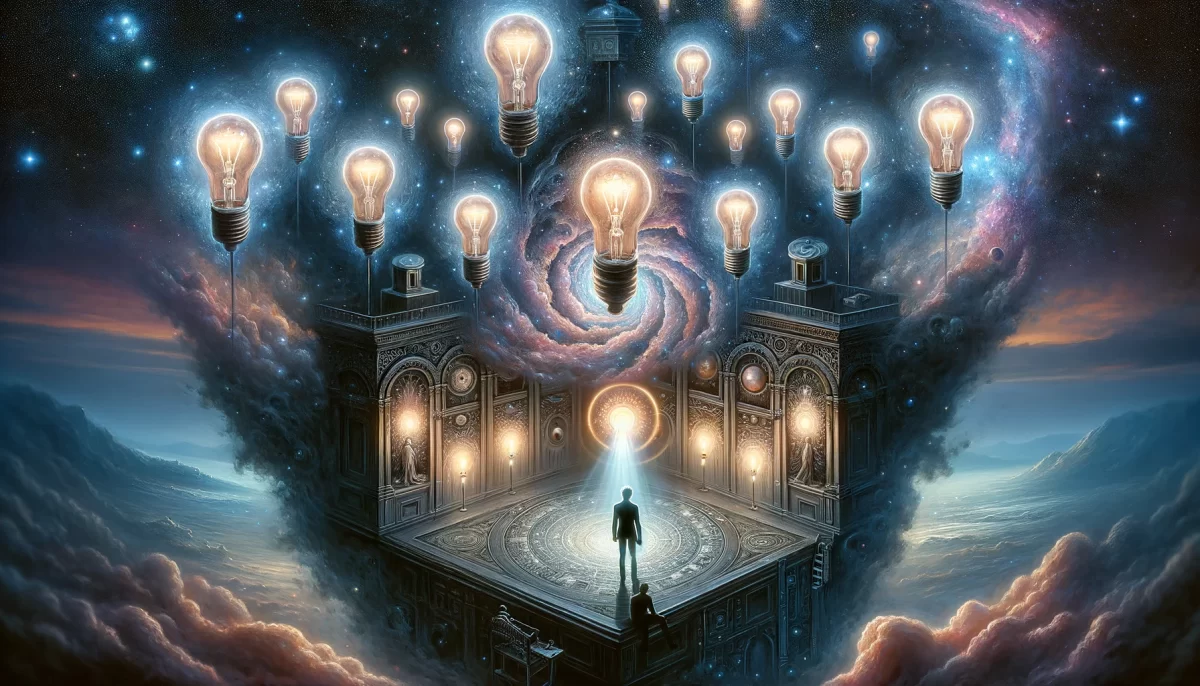

The spectrum of human emotions is complex and perplexing, each hue a testament to the intricate machinery of the mind. There are those who find comfort in the corners we might consider dark, taking a form of joy from what most would call misery.
Their reality, though contrasting with your own, is valid in its own right. It’s not for us to paint over their canvas with our preferred shades. Misery, or what we define as such, may be the soil in which they’ve chosen to grow, the stage upon which they’ve chosen to perform their life’s drama.
It’s easy to assume a form of responsibility, to think you can or should shift someone’s emotional landscape to mirror your own. But, in attempting to change another’s joy or misery, we often only succeed in complicating the emotional ecology, creating feedback loops that amplify rather than diminish the dissonance.
Perhaps the key is not in reshaping the world according to our whims, but in coexisting with the multiplicities of joy and misery, recognizing that each person’s emotional fabric is a unique tapestry woven from threads of their own choosing.
We are Space Monkey.